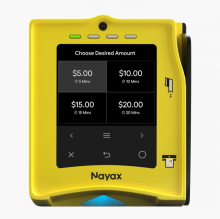In today's fast-paced world, businesses are constantly seeking innovative ways to streamline their operations and enhance customer experiences. One such innovation that has revolutionized the way transactions are conducted is cashless payment solutions. As businesses strive to stay ahead in the digital age, finding the right payment system tailored to their specific needs becomes paramount. In this article, we delve into the evolution of payment solutions, emphasizing the importance of security and customization.
The Need for Tailored Payment Solutions Every business is unique, with its own set of requirements and challenges. Off-the-shelf payment solutions may not always address these specific needs adequately. This is where tailored payment solutions come into play. By understanding the intricacies of a business, payment service providers can customize solutions that align perfectly with its operations. Whether it's a retail store, an e-commerce platform, or a service-based business, having a payment system tailor-fit to its requirements can significantly improve efficiency and customer satisfaction.
Securing Transactions in the Digital Age With the increasing prevalence of online transactions, security has become a paramount concern for both businesses and consumers. The rise of cyber threats and data breaches has highlighted the importance of implementing robust security measures in payment systems. secure payment services employ various encryption techniques and authentication protocols to safeguard sensitive information, ensuring that transactions are conducted safely and securely. By prioritizing security, businesses can build trust with their customers and protect their valuable data from malicious actors.
The Evolution of Payment Solutions The journey of payment solutions has been marked by constant innovation and technological advancements. From traditional cash transactions to the emergence of credit cards and digital wallets, the landscape has evolved significantly over the years. Today, businesses have access to a wide array of payment options, ranging from NFC-enabled contactless payments to mobile payment apps.
One of the key developments in recent years has been the shift towards cashless payments. Enabled by advancements in technology and changes in consumer behavior, cashless transactions offer convenience and efficiency to both businesses and customers. Whether it's using a debit or credit card, scanning a QR code, or tapping a smartphone against a POS terminal, cashless payments have become ubiquitous in the modern economy.
Tailoring Payment Solutions to Business Needs No two businesses are alike, and their payment requirements can vary significantly depending on factors such as industry, size, and target market. A one-size-fits-all approach to payment solutions often falls short in meeting the unique needs of each business. This is where customization plays a crucial role. Payment service providers work closely with businesses to understand their specific requirements and tailor solutions that address their pain points and optimize their operations.
For instance, a retail store may require a POS system that integrates seamlessly with its inventory management software, allowing for real-time updates and streamlined checkout processes. On the other hand, an e-commerce platform may prioritize features such as secure online payments, fraud detection, and customizable checkout pages to enhance the user experience and minimize cart abandonment rates.
By customizing payment solutions to suit the individual needs of each business, providers can deliver added value and foster long-term partnerships based on trust and mutual success.
Ensuring Security Every Step of the Way In an age where cyber threats loom large, ensuring the security of payment transactions is non-negotiable. Secure payment services employ a multi-layered approach to security, encompassing encryption, tokenization, fraud detection, and strict compliance with industry regulations such as PCI DSS. Encryption plays a crucial role in protecting sensitive data such as credit card numbers and personal information. By encrypting data both in transit and at rest, secure payment systems prevent unauthorized access and mitigate the risk of data breaches.
Tokenization is another effective security measure that replaces sensitive data with unique tokens, rendering it useless to cybercriminals even if intercepted. This adds an extra layer of protection to payment transactions, reducing the risk of fraud and unauthorized access.
Furthermore, robust fraud detection algorithms analyze transaction patterns in real-time, flagging suspicious activities and preventing fraudulent transactions before they occur. By leveraging artificial intelligence and machine learning, secure payment services ]can adapt to evolving threats and stay one step ahead of cybercriminals.
Conclusion In conclusion, the evolution of payment solutions has paved the way for a cashless, secure, and tailored approach to conducting transactions. Businesses today have access to a wide range of payment options and services, allowing them to cater to the diverse needs of their customers. By prioritizing security and customization, businesses can enhance efficiency, build trust with their customers, and stay ahead of the competition in the digital age. With the right payment solution in place, businesses can truly go hands-off and focus on what they do best – delivering exceptional products and services to their customers.
